The Venture Bros.: A Meditation on Failure
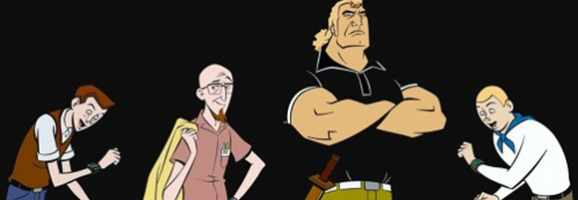
Nostalgia is one of the more innocuous illusions in life. The New York Times reported that these rose-tinted memories of the past have tangible mental health benefits. With this in mind, it makes sense that, in these troubled times, movies studios are rushing to churn out remakes and reboots left and right. Capitalizing on audiences’ fondness for the films and shows of days gone by, reboots and remakes make the present seem brighter by shining a light on the past.
The Adult Swim animated show The Venture Bros., however, has been turning this trend on its head since the pilot came out in 2003. Instead of trying to sugarcoat the present with the (possibly faded) memories of the past, The Venture Bros. argues that failure begets failure; the past is as bad as the present. Surprisingly, this doesn’t keep the show from being one of the funniest programs on air.
The show follows Rusty Venture, a former boy wonder-type who lives in the shadow of his genius father. Rusty is accompanied by his macho superspy bodyguard Brock Samson and his twin sons, the eponymous Venture brothers Hank and Dean. Forming a team not dissimilar to the cast of Jonny Quest, the odd Venture family unit makes up the backbone of the show, but they are just the tip of the iceberg when it comes to The Venture Bros.
Initially a parody of retro cartoons, the show starts off very niche and doesn’t get much more accessible as the seasons progress. The lore and intricacies of The Venture Bros. world quickly become as staggering as the comic book universes that the show slowly ultimately mocks. Once the main cast of Rusty, Brock, Hank and Dean were established, the show goes to great lengths to delve into the immense rogue’s gallery of friends and foes alike.
Archetypes as Office Drones
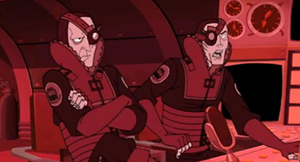
The broader mythos of The Venture Bros. is where the examination of failure begins. In your generic Hollywood movie or comic book conflicts, it’s good versus evil, no holds barred. This works because the heroes, and usually villains, are a special class of person; the rules of the average population can’t dictate what they do, so the heroes and villains duke it out. The film Man of Steel is a good example of this because, by the end of the movie, the only way resolution can be reached between Superman and General Zod is via a brawl. This pugilism forms the backbone of the trials in many Joseph Campbell-styled heroic arcs.
Such wanton chaos is not the way things are done in The Venture Bros., though. In the universe of the show, rivalries between heroes and villains are micromanaged and bureaucratized. The heroes are managed by the Office of Secret Intelligence (OSI), a G.I. Joe-influenced paramilitary organization, while the villains generally belong to the Guild of Calamitous Intent. This system of “organized arch-villainy” maintains peace between good and evil, despite its inherent silliness. In the episode “The Lepidopterists,” Jonas Venture Jr., Rusty’s brother, incredulously wonders why the battle lines are drawn in company ink.
The joke in all of this exposition is that the two rival factions in the show have managed to turn dastardly evil and daring heroism into a soul-sucking nine-to-five job. The banality of the system contrasts sharply to, say, SHIELD of the Marvel universe, a clear influence on the OSI. In a Marvel film, a maverick badass like Brock would be right alongside Black Widow or Captain America in a fight. In the world of The Venture Bros., he’s relegated to the equivalent of a dead-end job because of a disagreement with a corrupt superior. Some episodes come off more like costumed reenactments of Office Space scenes than they do of the action genres the show frequently parodies. One example of this comes during a battle between Rusty and his designated arch-enemy, The Monarch, in the episode “Self-Medication.” Just when Rusty seems to be on the brink of defeat, he cites the Guild’s rule that arch-enemies have to respect the “hero’s” medical appointments if they have a doctor’s note. Indeed, after reading the paperwork, The Monarch lets Rusty go.
The ludicrous management system established in the show reflects a modern world where the shining nostalgia of the past makes the present seem dim. The Venture Bros. takes this reflection and shatters it further, for flashbacks and character testimonies reveal that the past is hardly the utopian dreamscape of memory.
The Venture Deadbeats
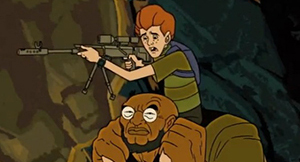
Before the stale back-and-forth sparring between the Guild and the OSI became commonplace, the Guild was a more aggressive organization that regularly clashed with Team Venture. Compared to the present day Team Venture that consists of Rusty, his sons and the pedophilic Sargent Hatred, the Team Venture of the ‘60s seemed to be an exemplary team of heroes. Led by Rusty’s father, Jonas, the team included a Sean Connery-type rogue, a hyperactive Captain America facsimile, a hulking martial-artist and several other heroic archetypes. Most characters remember the original Team Venture fondly, and many of the flashbacks shown reveal a mostly effective team of warriors.
The situation isn’t quite that simple. In the old days, a young Rusty would accompany his father and the rest of the team on wild adventures, commonly finding himself in various degrees of risk. In shows like Jonny Quest or, to cite a more modern example, Steven Universe, child adventurers routinely experience danger and peril, and the The Venture Bros. wonders if these experiences would have a traumatic effect. Unsurprisingly, the show’s answer is a resounding “yes.” In the aforementioned episode “Self-Medication,” Rusty’s therapy group includes approximations of the Hardy boys, Robin, Astro Boy and, naturally, Jonny Quest. Childhood memories of life-threatening or dangerous actions have finally caught up with their psyches; the chipper boy wonders of yesteryear are now broken wrecks.
Post-traumatic stress disorder isn’t the only negative byproduct of the seemingly idyllic past. Even after suffering the psychological torment of a childhood spent in peril, Rusty continues to suffer from the actions of his father. In the episode “Escape to the House of Mummies Part II,” Rusty attempts to repair his father’s shrink ray to no avail. “Forget it, I’m not my dad. I can’t even fix something he invented,” he confides to cohorts Billy and White. “I was a good boy adventurer, but I suck at this.” Even from beyond the grave, the past triumphs of Jonas Venture are a weight tied to Rusty’s legs, keeping him submerged in self-doubt.
Perhaps the most commonly recurring theme in the show is the failures of fathers. The Venture family in particular exemplifies this trend. The Patriarchal parenting traditions represent the failed ambitions of the whole family. Jonas’ father, Lloyd Venture, began the original Guild as a means to protect the mysterious device “the Orb.” Lloyd’s noble ambitions created a schism among the Guild’s members (including Oscar Wilde and Mark Twain), spawning the villainous Guild of Calamitous Intent. Jonas attempted to atone for his father’s mistakes by fighting the guild and pursuing “superscience,” but in committing his life towards progress and justice he neglected his son’s well-being. One particular example of this is the creation of the “sleep learning bed,” which taught knowledge while the user slept. Jonas created the sleep learning bed in order to teach Rusty without having to actually engage him.
Sure enough, when Rusty became a father, he too became emotionally distant. While Jonas was too busy being successful to truly care for his son, Rusty’s bitterness towards his own father leads to a similarly dysfunctional relationship with Hank and Dean. In addition to taking the same interpersonal shortcuts that Jonas did, Rusty devalues the lives of Hank and Dean by making countless clones of them as insurance in the event of their deaths. Nominally a protective measure, Rusty flippantly notes in the episode “Powerless in the Face of Death” that his sons have been cloned 14 times. He never tells the boys when he does this (they figure it out on their own in the third season) because it’s easier for him as a parent to just start over and not worry about their safety. Effectively, Rusty’s cloned safety net makes it easier for him to remain emotionally detached from his sons.
Overcoming Failure
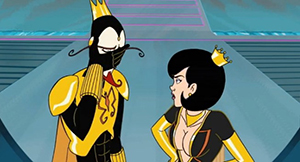
Failure isn’t restricted to any clan or faction, though. Anyone caught in the orbit of the Ventures seemingly inherits the family’s penchant for failure. Nearly every character in the show is damaged or broken or deeply flawed, and it’s these traits that The Venture Bros. focuses on. This is a marked change from many of the properties and franchises we see today. Sure, heroes like the Teenage Mutant Ninja Turtles and Robocop have their flaws and challenges, but it’s their heroism that shines through, and that’s generally the case in action or superhero movies. Heroes overcoming flaws is a satisfying arc that ends with a note of optimism.
Linear self-improvement, though, isn’t always how the real world works. People don’t always overcome their flaws with ease and The Venture Bros. reflects this. The Monarch’s henchman number 21, or Gary, is a prime example of the slow progression of development. For the first three seasons, Gary is a lonely, nerdy man-child living with his mother while working for the Monarch. In that time, his efforts to improve his situation are for naught, best exemplified in the episode “Fallen Arches,” when his attempt to become jetpack-themed solo villain fails when his fatness prevents him from taking flight. When his best friend, Henchman 24, is killed at the end of season three, Gary’s grief leads him to genuine self-improvement, but at the cost of his sanity; while Gary becomes a powerful warrior, he talks to 24’s lifeless skull as if it were real. Gary’s failure to cope with loss replaced his failure to apply himself.
Gary’s boss, The Monarch, is hardly better off. The closest thing the show has to a primary antagonist, The Monarch is given so much narrative focus that he comes off less villainous and more pathetic than anything. The Monarch initially wants nothing more than to kill Rusty, but as the show progresses he proves himself as a devoted lover to his eventual-wife, the aptly named Dr. Girlfriend (later Dr. Mrs. The Monarch). What’s more, The Monarch is shown to have climbed his way up from the bottom to become a full-fledged villain in the episode “Shadowman 9: In the Cradle of Destiny.” This ambition and romantic competence suggests a worthy villain, yet The Monarch is filled with self-loathing. In the episode “Return to Malice,” The Monarch tells Gary that “I hate myself more than most villains hate their archenemies.” This attitude could arise from his incompetence in regards to villainy. Even Dr. Girlfriend, while intensely loyal to The Monarch, tells Rusty in the episode “The Devil’s Grip” that “he may not be very good at it, but he loves it.”
Like in real life, The Venture Bros. continually illustrates that deep-seated flaws can’t be fixed in the span of one TV episode or a movie. Some flaws can’t be fixed at all. After five seasons, Gary is still a wayward soul looking for fulfillment, Rusty still has unresolved issues with his father and his childhood and The Monarch still hates himself.
Such harsh depictions don’t normally fly in film or television. A Today Show report discussed that audiences enjoy fantasy and superhero genres because they provide an escape. The glut of recent reboots and remakes is just fulfilling the increased desire for a brief excursion from the post-9/11, post-Snowden present.
The Venture Bros. doesn’t shy away from the bleakness of everyday life. It appropriates the worlds of action, adventure and fantasy and gives each setting a dose of everyday failure. The Venture Bros. doesn’t offer refuge or escape, it mocks the forms of entertainment that try to do so. Showrunners Doc Hammer and Chris McCulloch know that there is no escape, even in the safety of nostalgia. McCulloch put it best when he said in the commentary for the episode “Home Insecurity,” that, “I you’ll permit me to get big picture, this show is actually all about failure. Even in the design, everything is supposed to be kinda the death of the space-age dream world. The death of the jet-age promises.”
What do you think? Leave a comment.
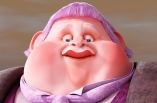
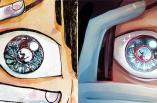
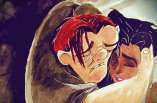
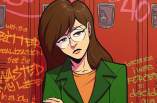
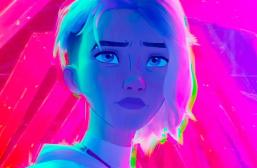
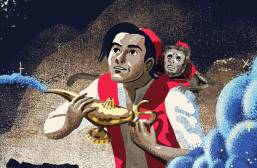
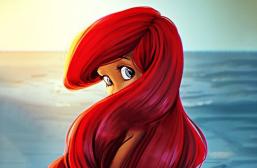
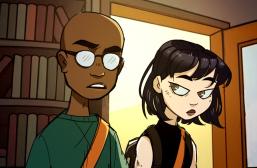
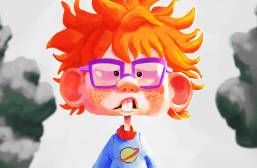
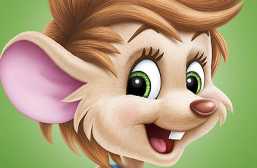
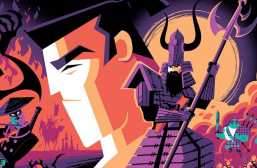
I got depressed when I found out season 6 is coming in, 2015.
I really want to see Season 6, this show is one of those crude comedies nerds (like myself) can watch and enjoy some of the inside jokes about certain characters or episode themes.
Seriously though the time table for this show is ridiculous. We waited for 2 years for a new season only to have one and realize we gotta wait two more for the next one. This sucks monkey balls.
I don’t understand why some fans act like VB is the only cartoon with year-long hiatuses. I had to wait at least 2.5 years between Superjail seasons 1 and 2.
The last season was a bit of a disappointment. Felt like it needed a few more episodes ti flesh out a real story.
This and Archer is all I need to make my life sweet!
I think the show has changed a lot, most of the new series I haven’t enjoyed nearly as much as the original back when Brock had the mullet and was the original body guard.
I agree about Brock; Sergeant Hatred is probably one of the show’s weakest characters.
There was definitely a lull in cool brock moments. He was awesome in OSI Love You though, that whole episode was amazing.
This show is worse than the Super Mario Bros movie.
Favorite show hands down. Love these guys!
Ouch. What a morbid, painful article…I love it!
Not because it’s morbid and painful (that would be eerie <_<), but because you've provided an excellent analysis of the show's central theme. Frankly, I hadn't totally picked up on it before. I got that the characters were all kinda sucky; even the superhero archetype ("Captain Rainbow"?) turns out to be a half-insane emotional wreck, and possible a pedophile besides. The show goes out of its way to subvert a crap-ton of common tropes, which is a large part of the humor. I just hadn't thought to take a more serious look at it.
I don't know if it's fair to claim that escapism is this massive, looming aspect of our culture in which all people indulge when consuming media, as there are plenty of stories out there that have bittersweet endings at best. But, it is true that most of the stories end on unrealistically optimistic terms. I go back and forth on whether or not that's a good thing, but for what it's worth, I hope to contribute to the numbers of more "realistic" tales =P .
For me most of my media consumption is a form of escape because whether or not a story has an optimistic or pessimistic ending it is still the story of another character or group of characters and their personal struggles and victories. As cliche as it may be it’s not always about what is gained or lost at the end of the journey it is the path that was taken to get there.
No show is as consistently fresh and entertaining as the venture bros.
Honestly, there are so many small intricacies in the show that it takes a long time for them to make sure everything is neatly touched on. Small things that happen in the first season are still crucial to some of the character arcs in the fourth. I was lucky enough to talk to Doc Hammer, one of the creators for about half an hour at SDCC, and that was the main thing we hit on- how long it takes them as writers to re-watch and connect little things. Little brush strokes lead to broad sweeping plots. It’s one of my absolute favorite shows because of that.
Nice article! I was excited that someone wrote about The Venture Bros. The show’s writing is fantastic, and all of the humor really comes from the characters. It’s hilarious and morbid at the same time, which is kind of what makes it awesome.
Venture Bros. excels when it lampoons hero culture. Just like you said in the article: the show embraces failure, and any sort of gilded/golden age of heroism is shown to be well, a bunch of bullshit.
It’s a ludicrous concept for a show, animated or not, but it’s endearing to me because I really feel like actual heroes and villains would be this inept and egomaniacal. No one’s perfect, so why should “super” people be?
This is one of the smartest shows around with its great references and lack of loopholes.
Great analysis